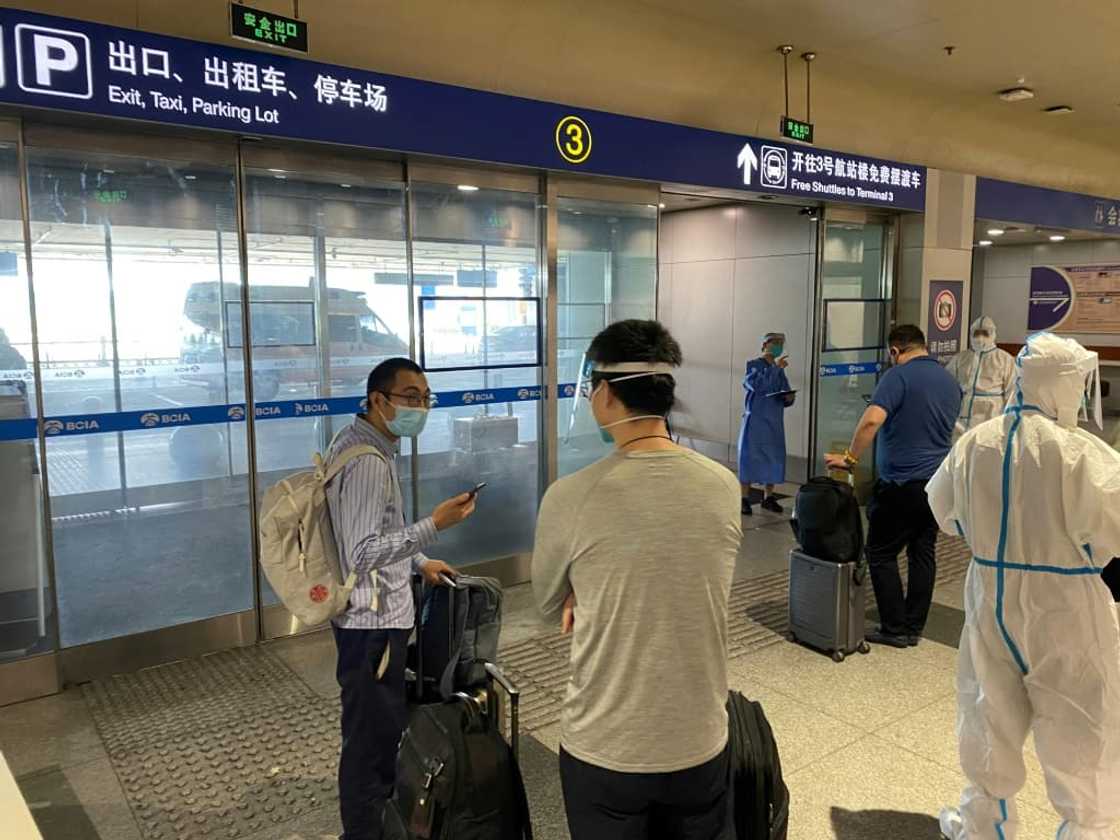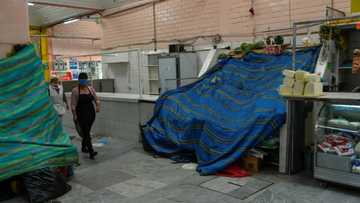China halves quarantine time for overseas travellers

Source: AFP
PAY ATTENTION: Follow Briefly News on Twitter and never miss the hottest topics! Find us at @brieflyza!
China on Tuesday reduced the length of mandatory quarantine for inbound travellers, in the biggest relaxation of entry restrictions after sticking to a rigid zero Covid policy throughout the pandemic.
The new guideline cuts the length of mandatory quarantine for overseas travellers to seven days plus three more of home monitoring -- a drastic drop from about 21 days of quarantine and home monitoring combined.
China closed off its international borders in March 2020 and the number of international flights is still tightly restricted in an effort to tamp down "imported" virus cases as the pandemic rages elsewhere.
Since then overseas arrivals have faced weeks of strict monitoring and costly quarantine in hotels and designated centres.
Under the latest Covid prevention and control policy guidelines announced by the National Heath Commission and the State Council, inbound travellers entering China will now be required to quarantine centrally for just seven days.
Since April, a growing number of "pilot" cities have already slashed mandatory centralised quarantine for overseas travellers to 10 days, with Beijing reducing quarantine as well last month.
PAY ATTENTION: check out news exactly for YOU ➡️ find "Recommended for you" block and enjoy!
However, scarce international flights are frequently subject to cancellations, as Beijing operates a "circuit breaker" system where routes are temporarily cancelled if enough positive passengers are discovered on board.
Opening up
China's staunch adherence to its zero Covid policy is unlike the rest of the world, which has largely removed most restrictions despite the spread of the highly infectious but less life-threatening Omicron variant.
Earlier this month, China marginally relaxed visa restrictions to allow foreigners to visit direct family members and foreign permanent residents in China.
Chinese aviation regulation officials said at a Friday briefing they are negotiating with more countries to gradually increase the number of flights to China.
In recent weeks, international students from several countries including India and Pakistan have been allowed to return to China for the first time since the pandemic.
However, most analysts believe the resumption of inbound tourism remains far off.
A twice-in-a-decade Communist Party congress where the new top leadership will be announced is set to take place in the autumn, when authorities will be keen to suppress any resurgent domestic outbreaks.
Chinese President Xi Jinping has repeatedly emphasised the correctness of zero Covid despite the mounting costs to China's stagnant economy.
He vowed in May to "fight against any speech that distorts, questions or rejects China's Covid-control policy".
China has also tightly restricted the international travel of its own citizens, who have been barred from making "non-urgent, unnecessary" trips since late 2021 with most passport renewals all but halted.
According to the latest guidelines, the quarantine requirement has also been cut for people identified as close contacts of those infected in outbreaks inside China.
PAY ATTENTION: check out news exactly for YOU ➡️ find "Recommended for you" block and enjoy!
Source: AFP



